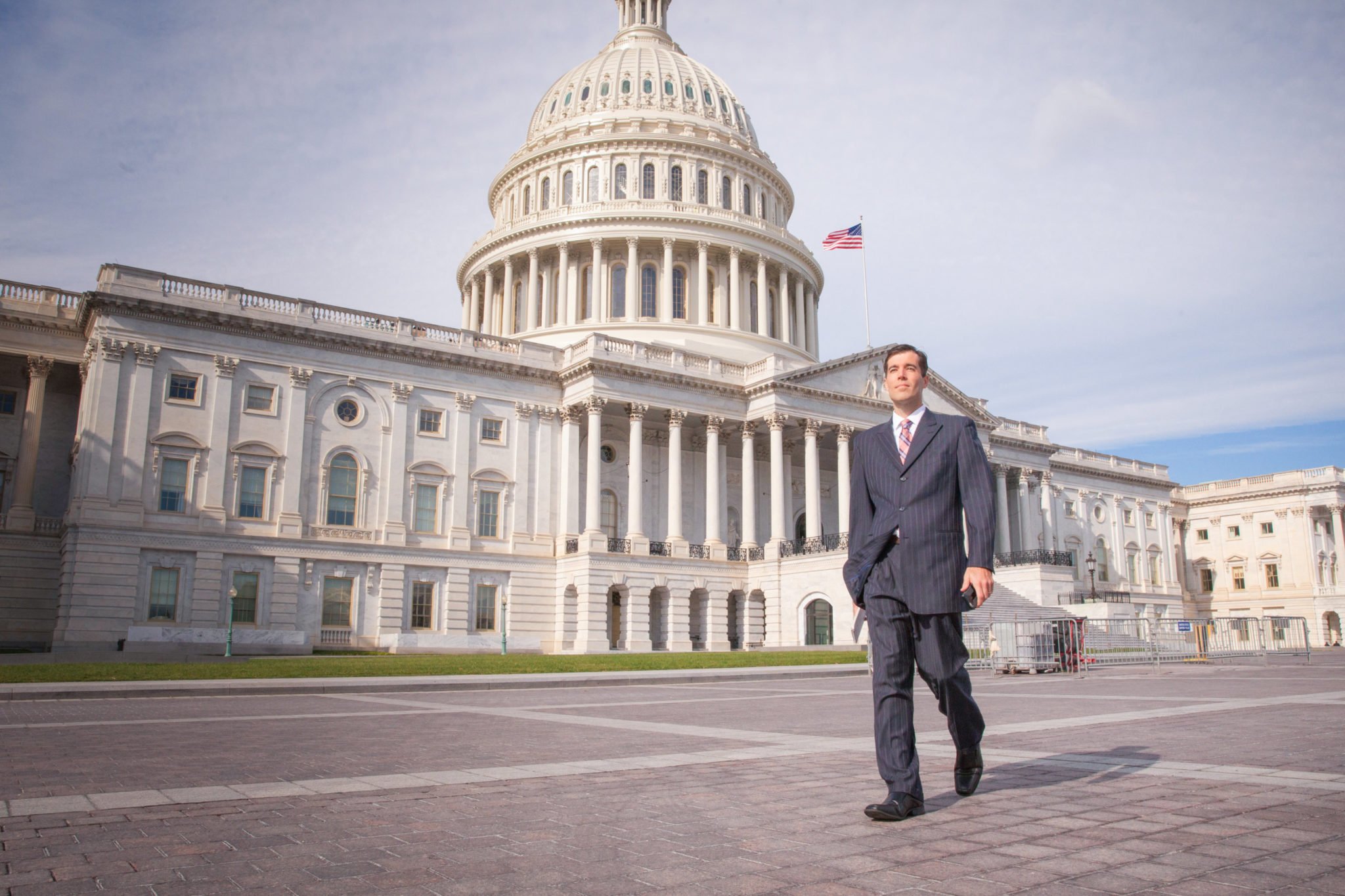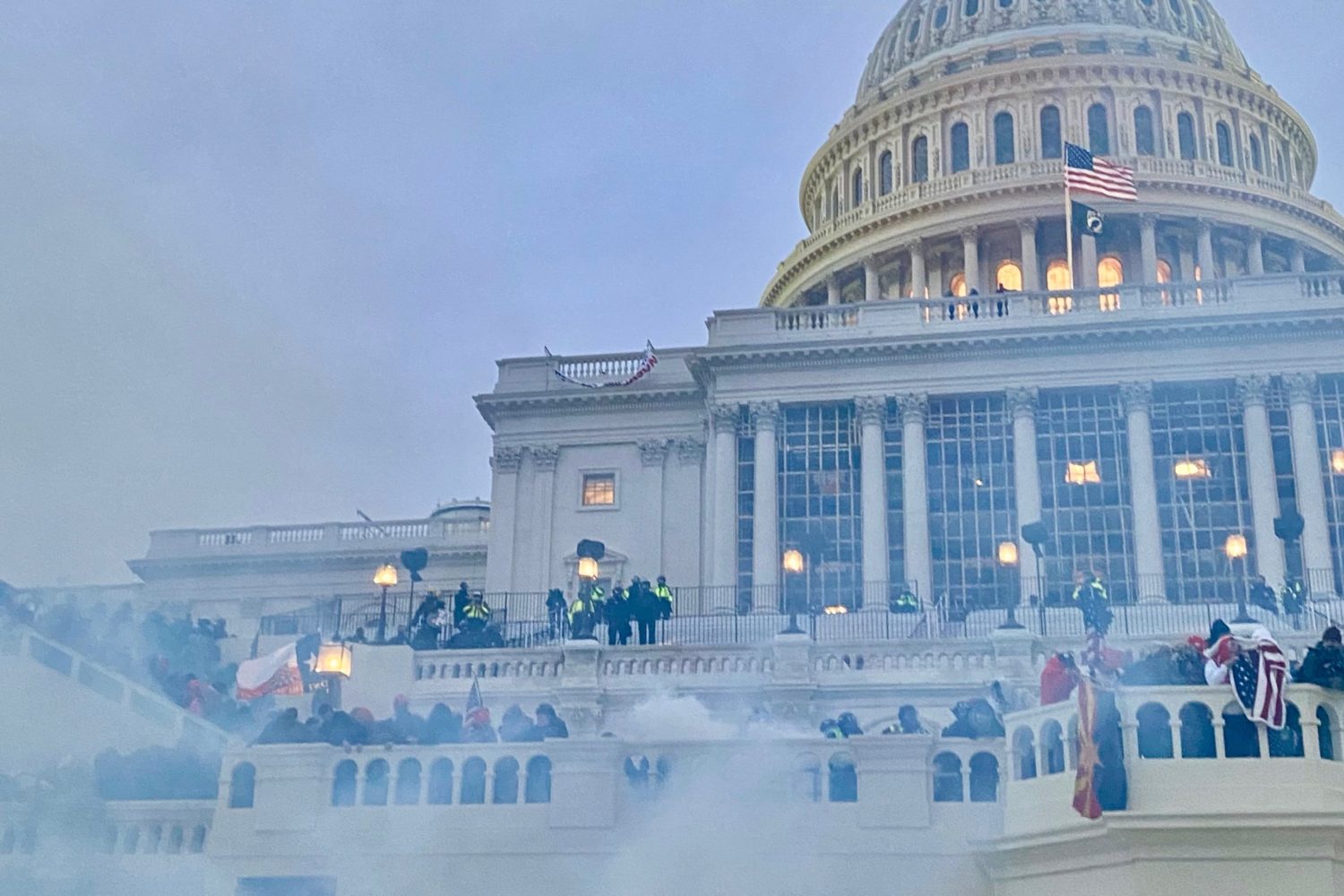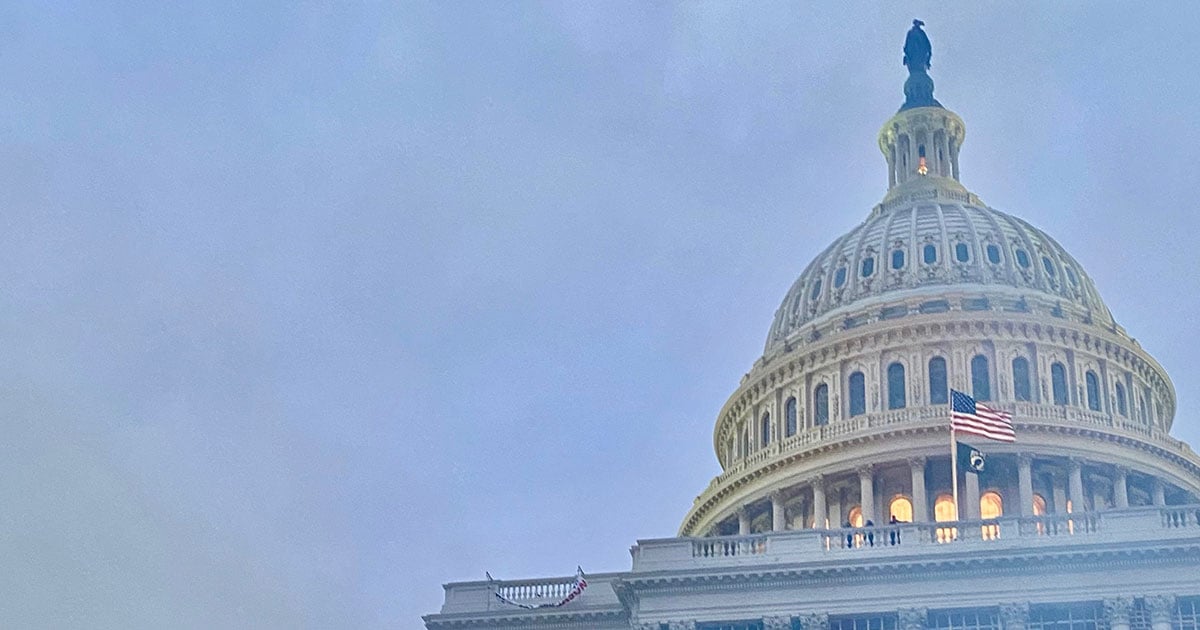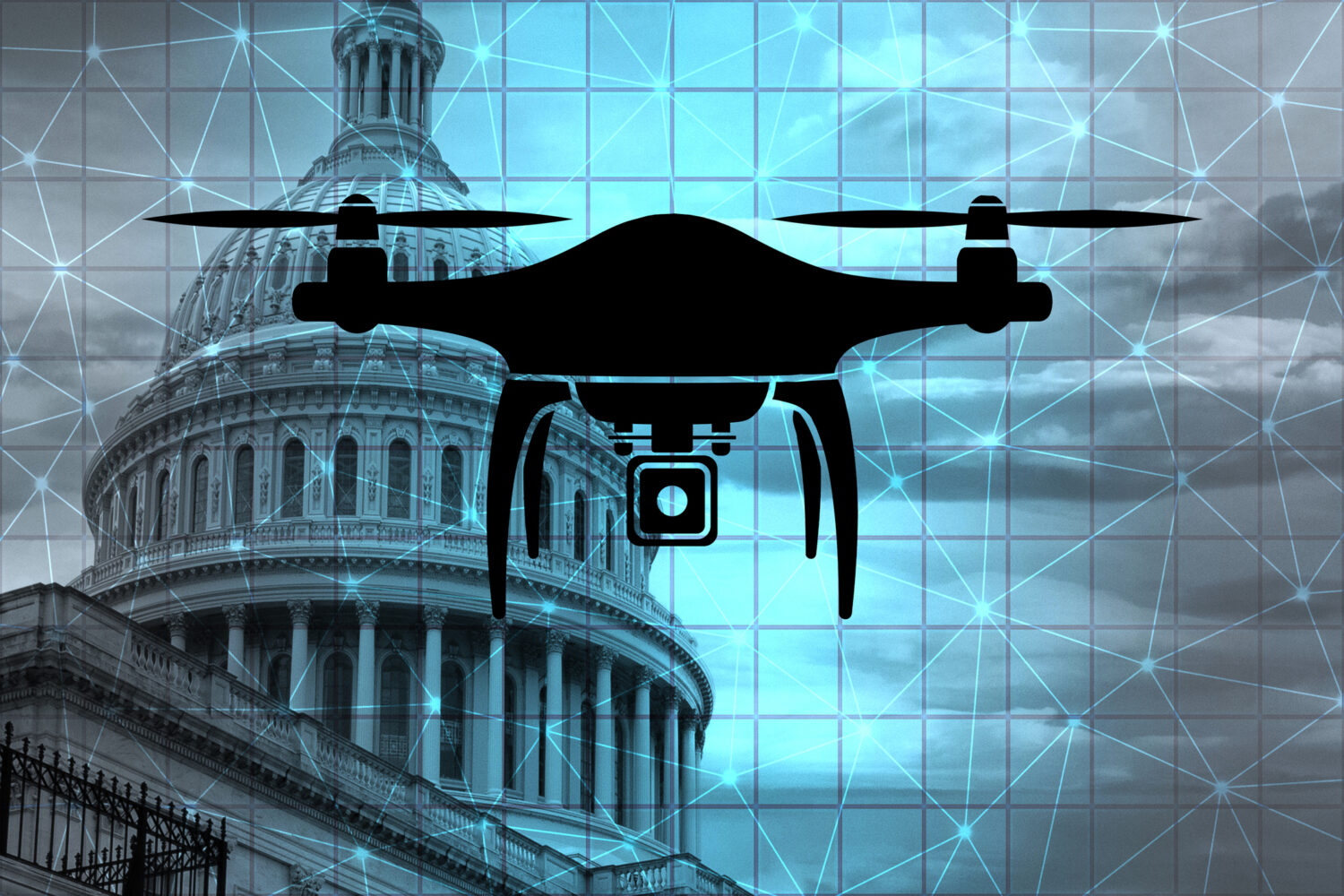Few journalists have followed the January 6 investigation as closely as CBS News congressional correspondent Scott MacFarlane, who covered the 2021 attack on the Capitol as a reporter for NBC4 before moving to the national outlet at the beginning of this year.
With the first public hearing of the House of Representatives’ Select Committee to Investigate the January 6th Attack on the United States Capitol scheduled for Thursday at 8 PM, we checked in with MacFarlane to ask what he’ll be watching for.
Washingtonian: Scott, a primetime congressional hearing! It’s like we’re back in 1995. You’ve absorbed so much of this story. What will you be looking for?
Scott MacFarlane: It feels like a provocative notion that this committee is promising unseen materials and previously unseen materials, because everybody feels like they’ve seen so much. Even casual news observers in their minds’ eye can picture January 6, even casual news observers think they know what January 6 was, but perhaps most importantly, it’s possible even casual news observers have baked-in opinions about January 6 and are not persuadable. I’m interested if anybody’s persuadable. It’s been 16 months; people seem pretty intransigent with their thoughts on this.
Do you think those casual news observers will tune in? Or is it just going to be freaks like us?
I think the committee is attempting to find people who are not already immersed into this topic. If they weren’t trying to find a broader audience, they could do this online, during business hours, at their own convenience. That they have teased videos, post production, elements you haven’t seen before, has a theatrical sense to it. They think they’ve found a piece of history here. And also they do want to propose legislation coming out of these hearings, and that always requires some public support or public awareness. So this will help kind of launch or provide a foundation for legislation.
Bringing in James Goldston to produce the hearing is probably at a point along that line.
It has the potential to add production value. Congressional staff are not known for their ability to produce great theatrics and great theater.
I think you’re forgetting all those great signs that they put up on easels.
Those are nice.
But seriously, as you alluded, these are complex issues. And complexity is hard to televise.
This is the challenge of a lifetime for a congressional committee. They have a thousand interviews. They’ve got 140,000 records. And they have this limited bandwidth of a few hearings, potentially, in front of an audience that also has an iPad on their lap, a kid on their lap, or dinner on their lap. And they’ve got to convince those people to look up and watch. So how they choose the relevant parts of their findings, how they synthesize the relevant parts of their findings, and how they produce it is important. It’s a real uphill battle, but they sure do have a lot to play with.
Reporters appreciate the challenge of distilling a lot of information into digestible form. I don’t know if it helps the committee or not that so much of their work has already leaked. Do you expect there’ll be meat left on the bone by the time that this hearing airs, that we’re going to learn new stuff?
They’re pretty unequivocal saying it’s materials not seen before. You had one member, Jamie Raskin, say we’re going to blow the roof off the house with what we’re going to show. So they’re promising. Question is, Are they overpromising? Because yeah, there have been leaks. There’s been good enterprise reporting. What I found most striking is that they showed some of their cards in their civil court filings: They showed some of what they had to go to federal court in California and try to get more from John Eastman. To convince the court that attorney-client privilege didn’t apply they had to say, they thought they had to say that they had a good faith belief that there was a crime committed, that there was conspiracy to defraud the US. And they showed some stuff as part of that argument.
In the civil case brought against them by Mark Meadows, they released text messages sent to Mark Meadows by key figures: Donald Trump Jr., Fox News hosts, other members of Congress, Jim Jordan, Scott Perry. So they’ve shown some of their cards through the court filings. So I’m going to be interested as anybody to see what’s new come Thursday.
One of the storylines I’m most interested to hear about is the seditious conspiracy charges leveled at some of the Proud Boys and the Oath Keepers. What are you most keen to hear about?
I’m most captivated by the 187 minutes. Because the Justice Department has put its marker down as to what it thinks happened during those three hours on the ground at the Capitol. But what the Justice Department hasn’t been spelling out is what was happening at the White House during those three hours.
I’m waiting to see if this committee has a tick tock for the White House, the Trump administration, for those three hours. I think that’s the bottom line question for the casual viewer. The Watergate question: What did Trump know? When did he know it? And in this case, what did he do about it? Or what did he not do about it?
President Trump is reportedly looking to counterprogram the hearing. How difficult do you think it would be to shift attention away from what’s going to happen on Thursday night?
To be charitable? I don’t know why one would have to counterprogram something at this moment. This committee’s hearings are happening at the start of summer, which for you and me and other parents of kids couldn’t be a busier time of year. There are multiple other crises going on right now that are dominating the news cycle, from the pending Supreme Court ruling to the mass shootings to gas prices and rapid inflation. And, frankly, it’s summer. People aren’t glued to their television or their devices the way they are in the winter, or the cold months of spring and fall. So I think the committee has got enough obstacles without somebody having to counterprogram against them. I’m also not sure how one would counterprogram against the committee without reminding people that committee is doing this work. It’s like saying, “Don’t think of a pink elephant.” Well, now I’m thinking of a pink elephant.
Do you think people around here will watch?
I still think this should and will disproportionately captivate our area, the DC area, because this committee has a specialized team looking at the security failures and intelligence failures and the safety of the federal workforce. If you take the politics out of this, you take the overarching unique implications of January 6 out of this, there still was an attack on the building where thousands of our neighbors work. So I would think no matter what your politics are, or no matter how captivated you are by January 6, if you live in Maryland, DC or Virginia, you know people who work for the federal government, and you should be engaged in this because they are going to likely provide revelations as to what type of failure put all of those federal workers at risk that day.
This interview has been lightly edited and condensed.




















